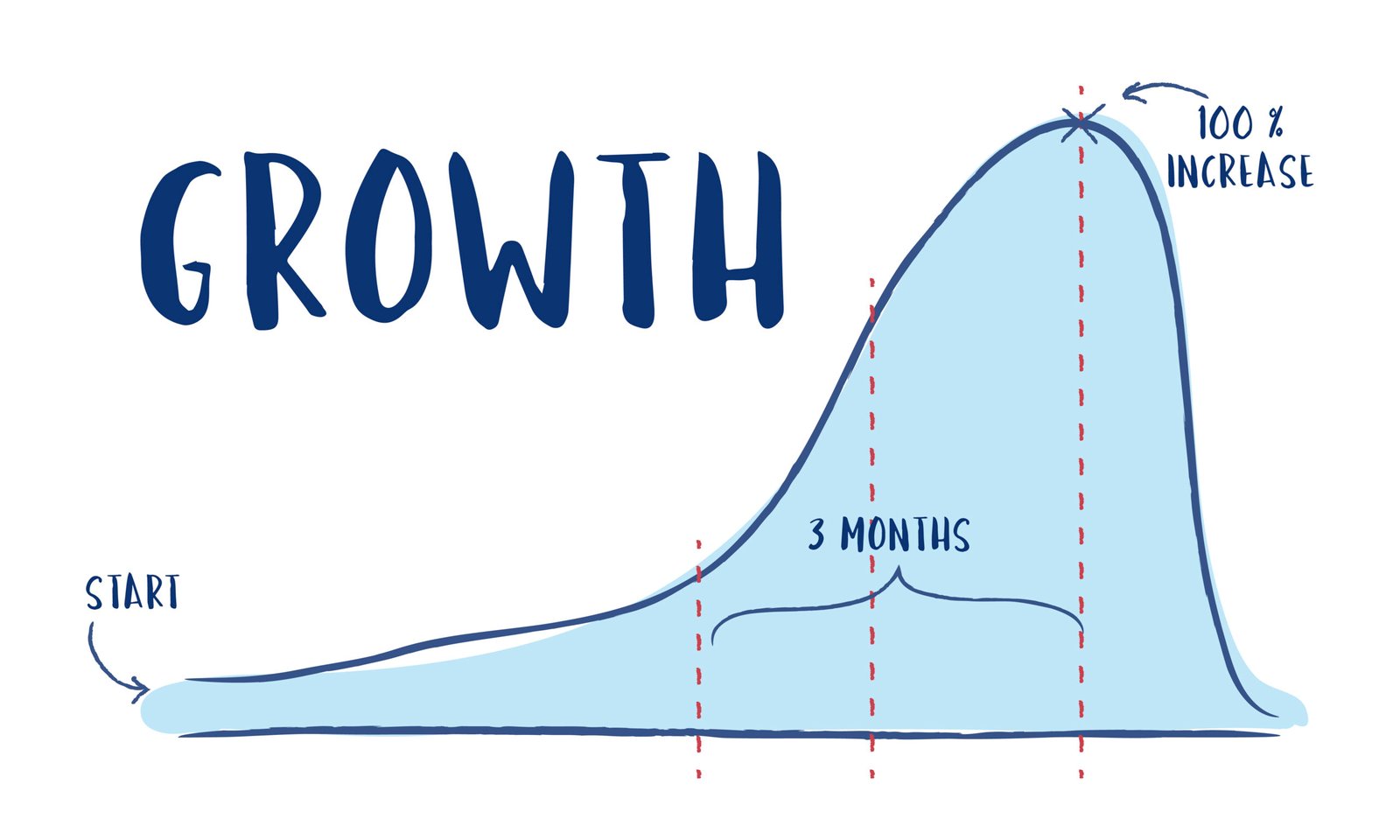
Ever felt stuck, like no matter what you do, you’re just not “good at something”? That feeling may not be about your ability — but about your mindset. A growth mindset is the belief that intelligence, skills, and talents can be developed through dedication, learning, and effort. Unlike a fixed mindset, which assumes your abilities are unchangeable, a growth mindset encourages improvement and resilience.
Your mindset affects how you approach challenges, failures, and even feedback. People with a growth mindset see setbacks as opportunities to learn, not as personal failures. This belief system can be a game-changer in both your personal and professional life.
Fixed Mindset vs. Growth Mindset
- Fixed Mindset: “I can’t do this.”
- Growth Mindset: “I can’t do this yet.”
That one word — yet — opens up space for learning and possibility. People with a growth mindset embrace challenges and persist in the face of setbacks.
How to Develop a Growth Mindset
- Embrace Challenges – View difficulties as opportunities to grow.
- Celebrate Effort – Focus on progress, not just outcomes.
- Learn from Feedback – Use constructive criticism to improve.
- Change Your Self-Talk – Say “I’m learning” instead of “I’m failing.”
- Practice Patience – Growth takes time and consistent effort.
Real-Life Example
Many successful people—from athletes to entrepreneurs—credit their achievements to a skills mindset. For instance, Michael Jordan famously said he succeeded because he failed over and over again. That resilience and willingness to improve made him a legend.
Why It Matters
A intelligence mindset can lead to better problem-solving, increased motivation, stronger relationships, and more confidence. It helps you see potential where others see limits—and that can be the difference between giving up and leveling up.
Small Steps Lead to Big Growth
Developing a skills mindset doesn’t happen overnight. It starts with small, intentional steps—like being open to feedback, staying curious, and reminding yourself that progress is more important than perfection. Over time, these tiny mindset shifts create a powerful ripple effect in every area of life.
Real Progress Takes Time — and That’s Okay
One thing often misunderstood about the growth mindset is that it promises instant transformation. The truth? Growth is rarely linear. Some days you’ll feel like you’re making giant leaps forward, and other times, it may feel like you’re stuck or even moving backward.
That’s completely normal.
It’s during those challenging moments — when you fail, feel confused, or want to give up — that a growth mindset matters most. It’s the voice in your head that says, “I don’t get this… yet,” or “This mistake is teaching me something.” These small mental shifts may not feel groundbreaking, but they are the foundation of long-term success.
A Personal Reflection: Progress I Didn’t Notice at First
Speaking from experience, there were many times I doubted my own progress. Whether it was learning a new skill or stepping outside my comfort zone professionally, it didn’t always feel like I was improving. But when I looked back — say, after a few months — I was surprised at how far I’d come. That’s the beauty of a growth mindset: it doesn’t always give you instant results, but it plants seeds that quietly grow.
So if you’re reading this and feeling behind — please know you’re not. Keep showing up, keep learning, and keep believing that effort really does count. Your potential isn’t fixed — it’s unfolding.
Celebrate the Process, Not Just the Outcome
We live in a world obsessed with results — grades, numbers, followers, income. But one of the healthiest parts of adopting a growth mindset is learning to enjoy the process. Every practice session, every revision, every late night spent trying again — that’s where growth happens.
Start celebrating the little wins: understanding a new concept, asking a brave question, sticking to your routine, or bouncing back after a tough day. These small moments are proof that you’re growing, even if no one else sees it yet.







